Our exclusive survey reveals what women want at work — and it’s strikingly straightforward.

Both men and women consider salary the most important factor in choosing a new employer — but women place more value on workplace flexibility.


Women place greater value on “leading indicators” of flexibility, such as the presence of women in the C-suite, inspiring leadership and progressive DEI policies.
Companies looking to attract — and retain — more female talent can do so by improving their culture and changing their policies to increase workplace flexibility.
Companies face a worrying global trend — the departure of talented women from the workforce compared to their male counterparts, often because of prevailing workplace policies.
So, what can companies do to attract — and retain — more female talent?
We asked more than six thousand people worldwide* what they consider when choosing a new employer — and the results reveal a stark difference between the sexes.
* We surveyed 6,582 people in ten countries — Brazil, China, Denmark, France, Germany, Japan, Spain, Sweden, the UK and the US — between May 6 and May 13, 2024.
Our first question concerned in-work benefits.
We presented respondents with ten benefits and asked them to choose those they deem most important when selecting a new employer.
Men and women have the same order of priorities.
The top three answers? Salary, location (city or region) and commuting time.
The bottom three? Access to private mental healthcare, parental leave schemes and the presence of international offices.
But they don’t perceive each benefit equally. There are notable gaps between the sexes, with women selecting some benefits much more than men.

SALARY
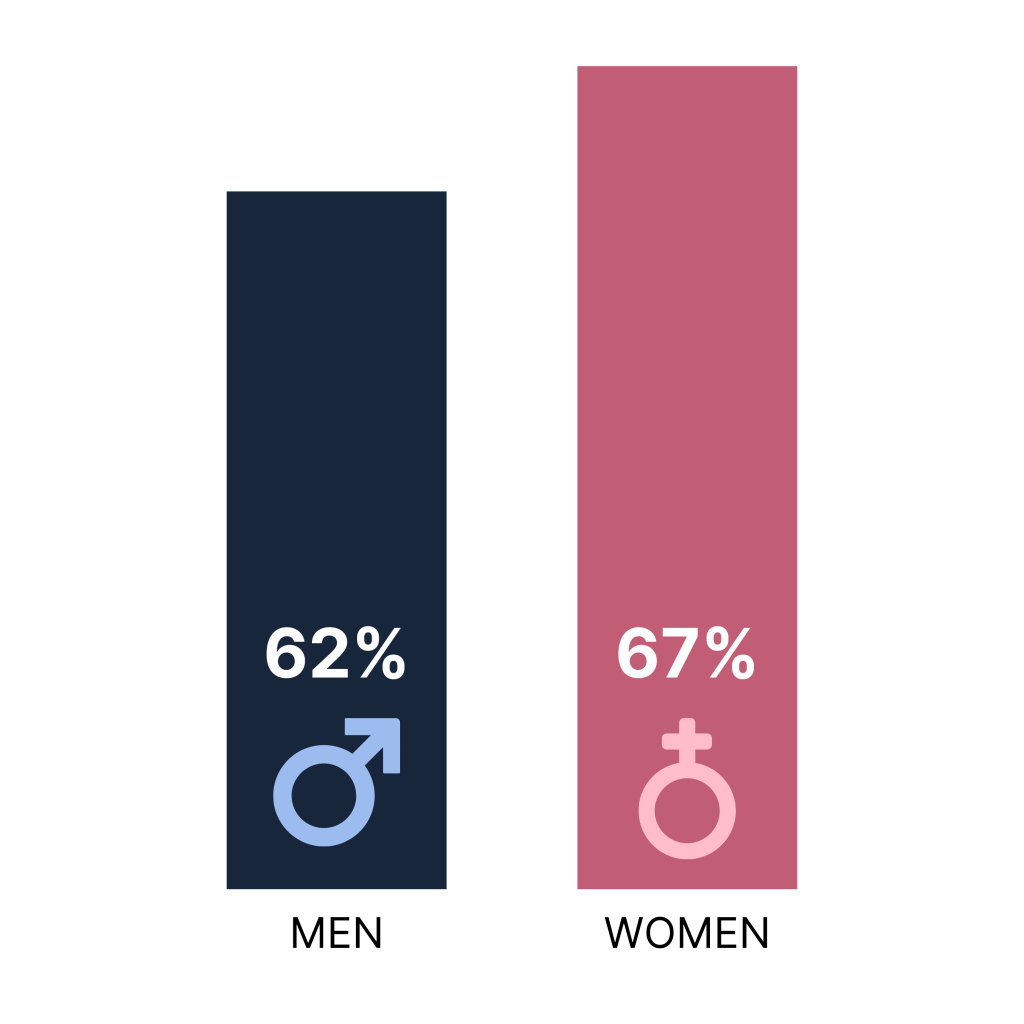
LOCATION (CITY/REGION)
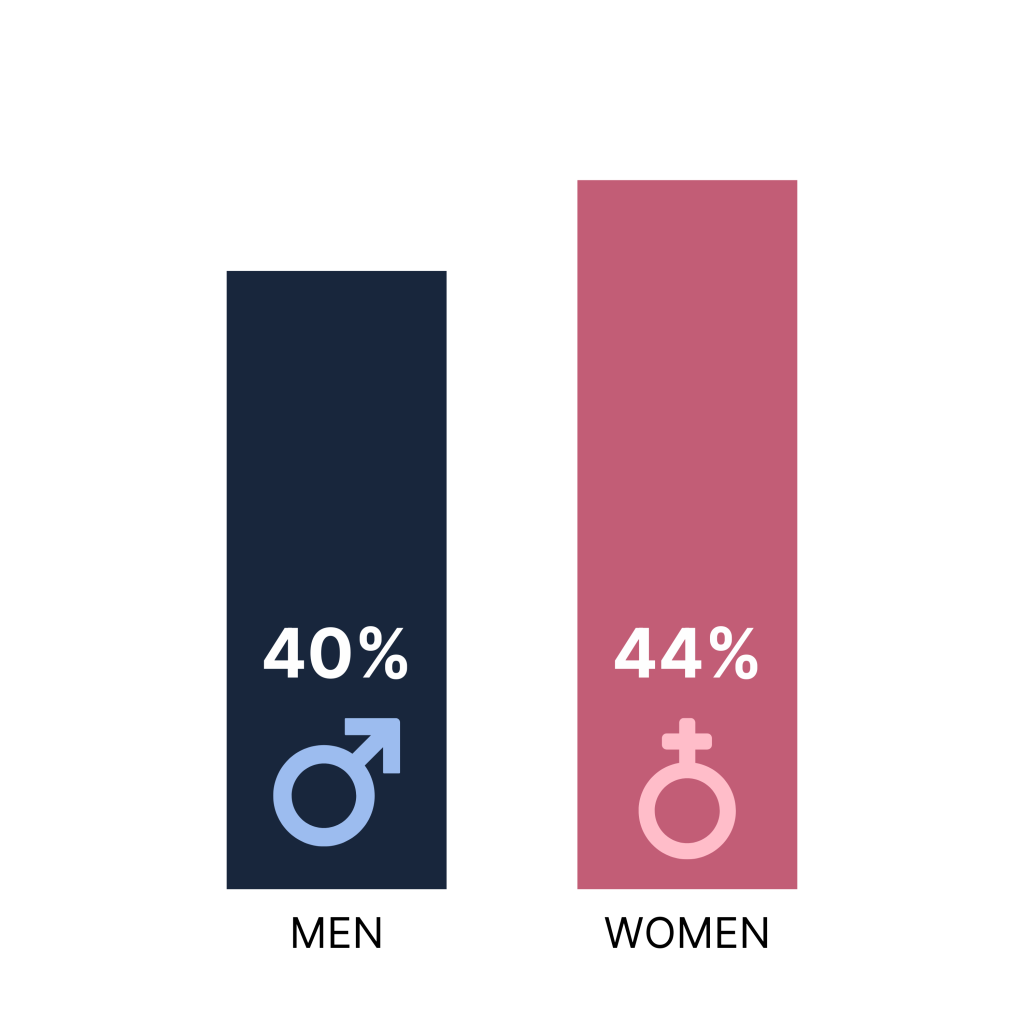
COMMUTING TIME
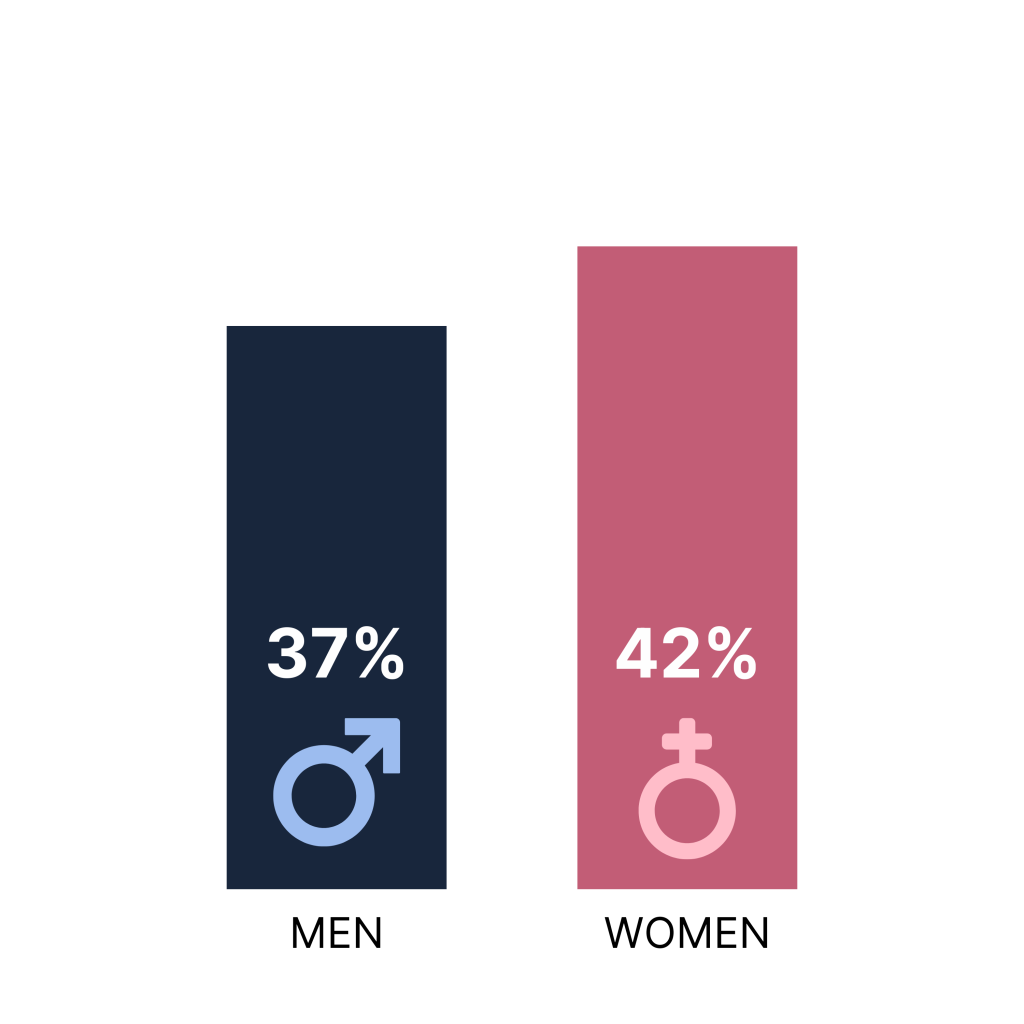
WELLNESS BENEFITS
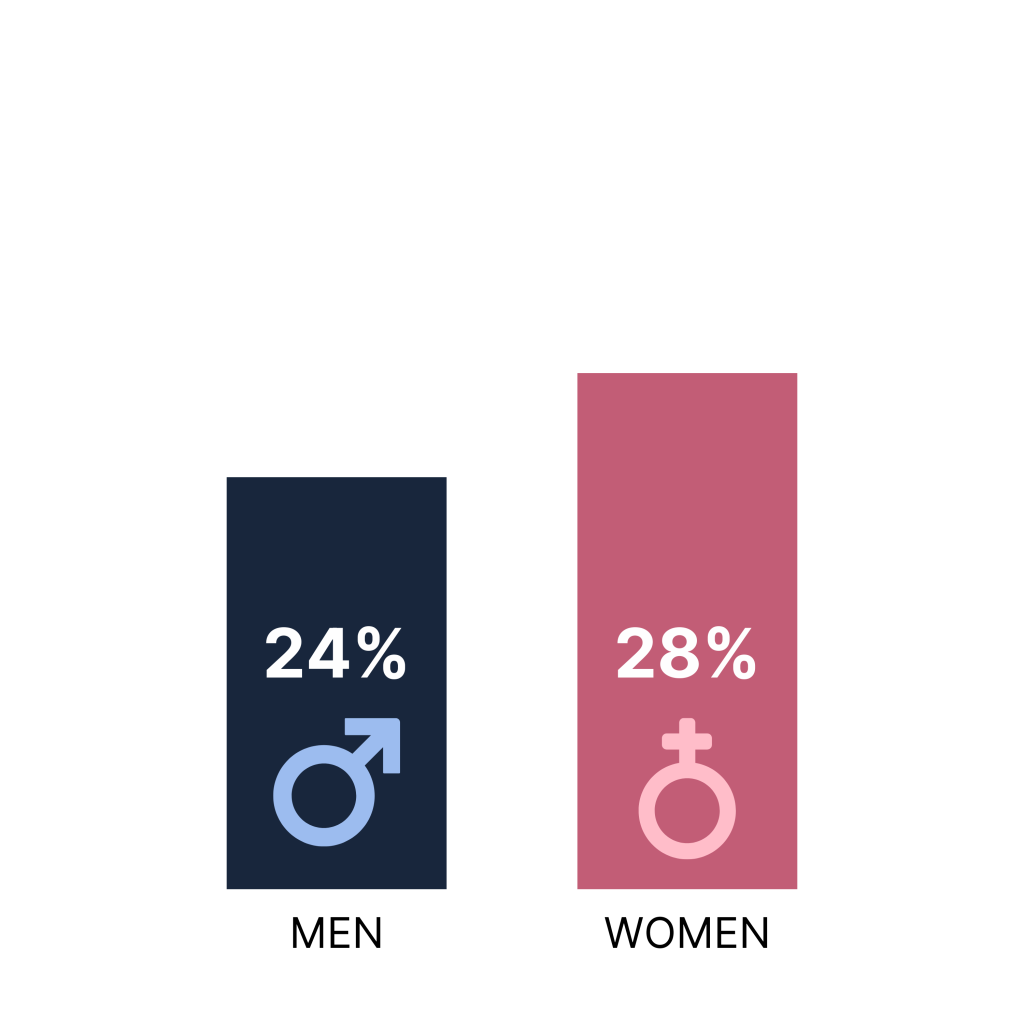
BONUS SCHEME
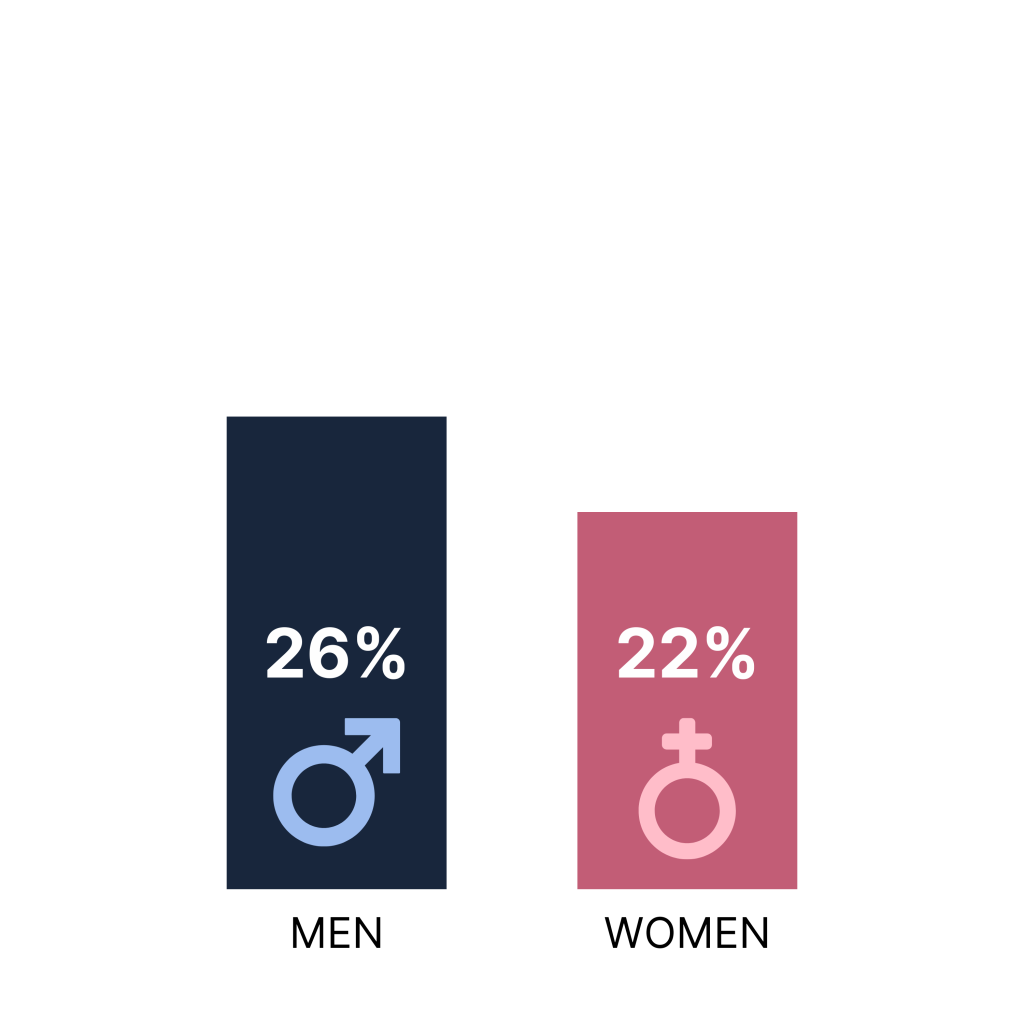
INTERNATIONAL OFFICES
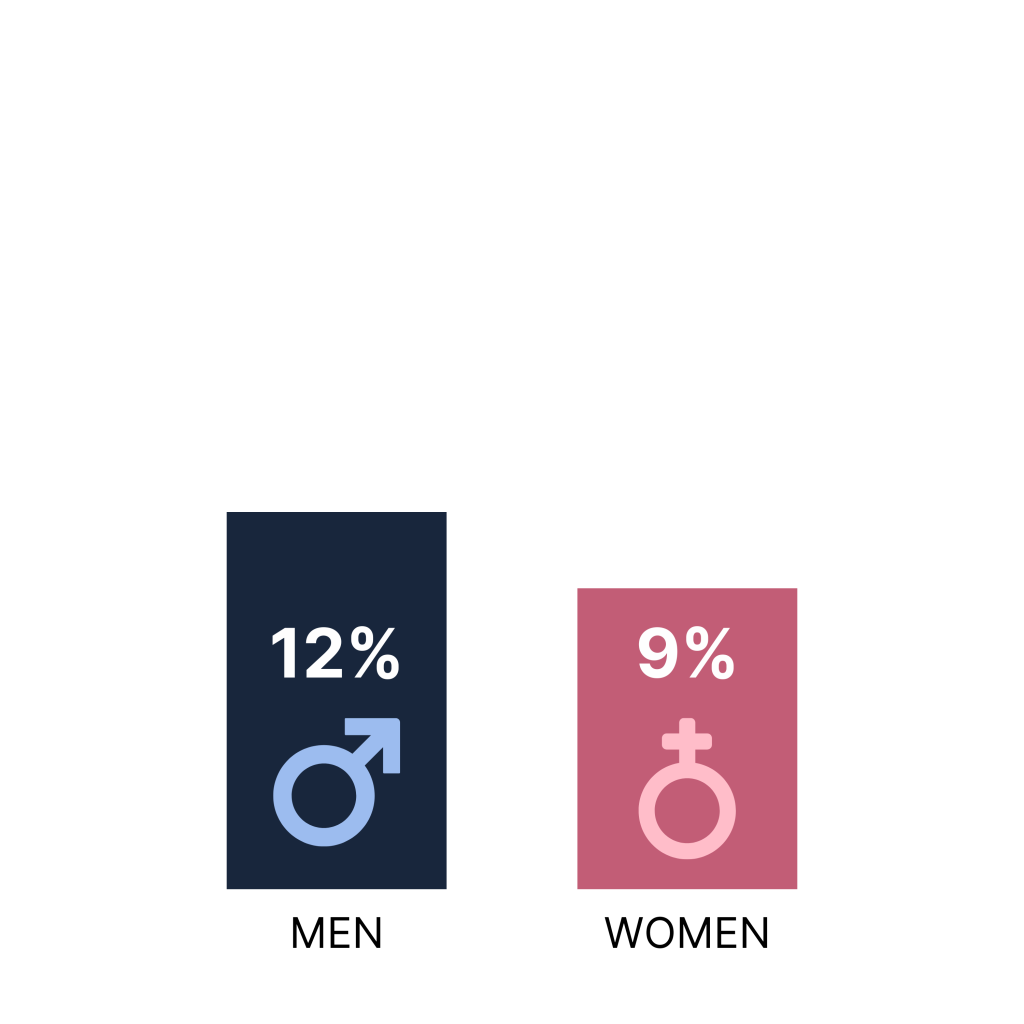
In fact, there are only two in-work benefits that men value more than women — the existence of a bonus scheme and international offices.
Wellness schemes may be a common office perk — but global opinions differ as to their importance.
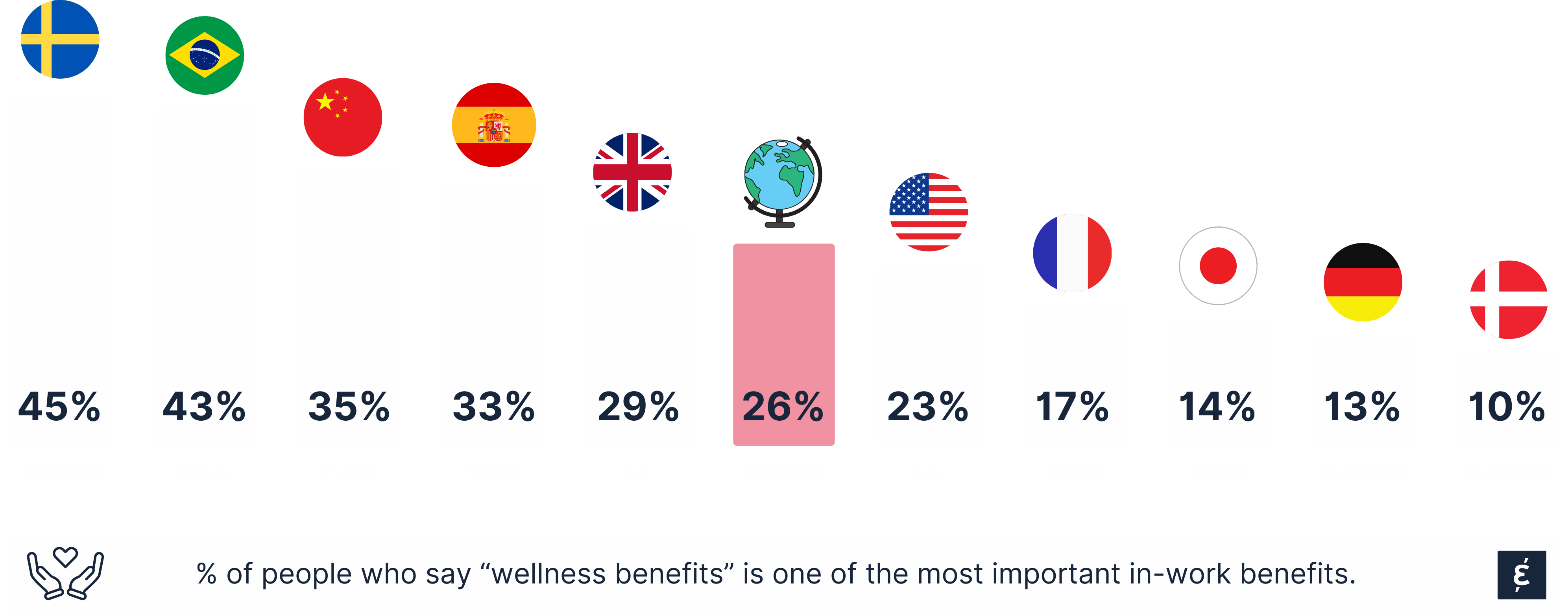
Our second question concerned workplace culture.
We presented respondents with twelve aspects of office culture and asked them to choose those they deem most important when selecting a new employer.
Though men and women have more or less the same order of priorities, there are considerable differences in how much they value each aspect.
HEALTHY WORK/LIFE
BALANCE
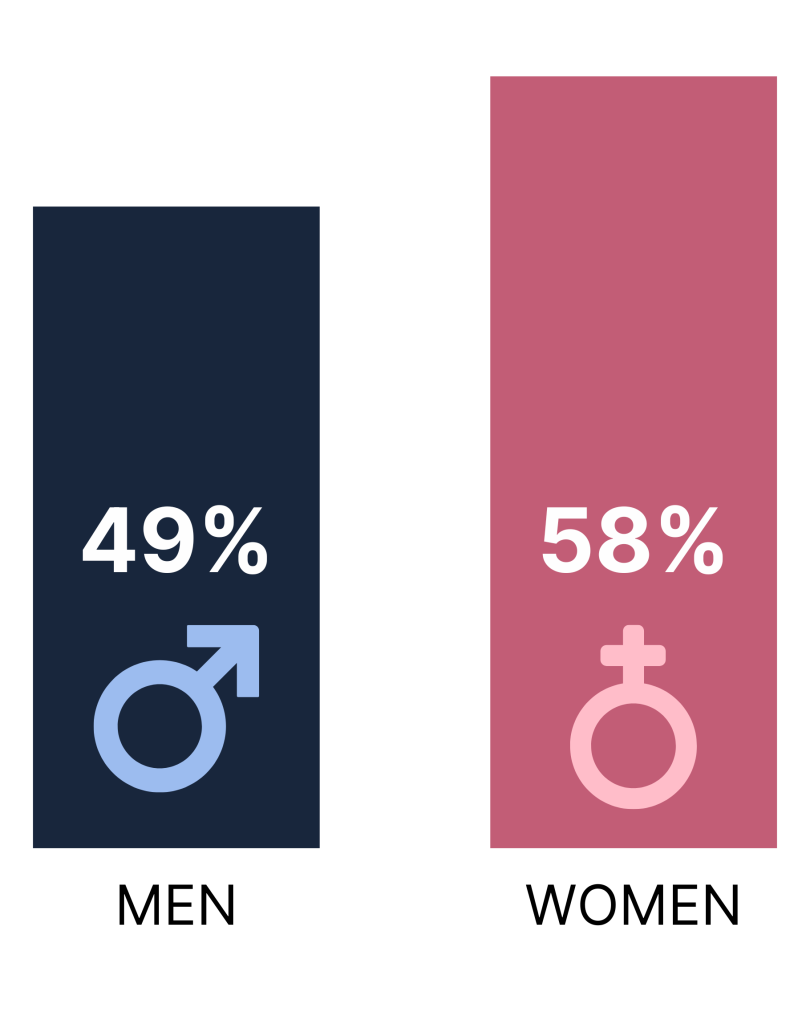
FLEXIBLE
HOURS
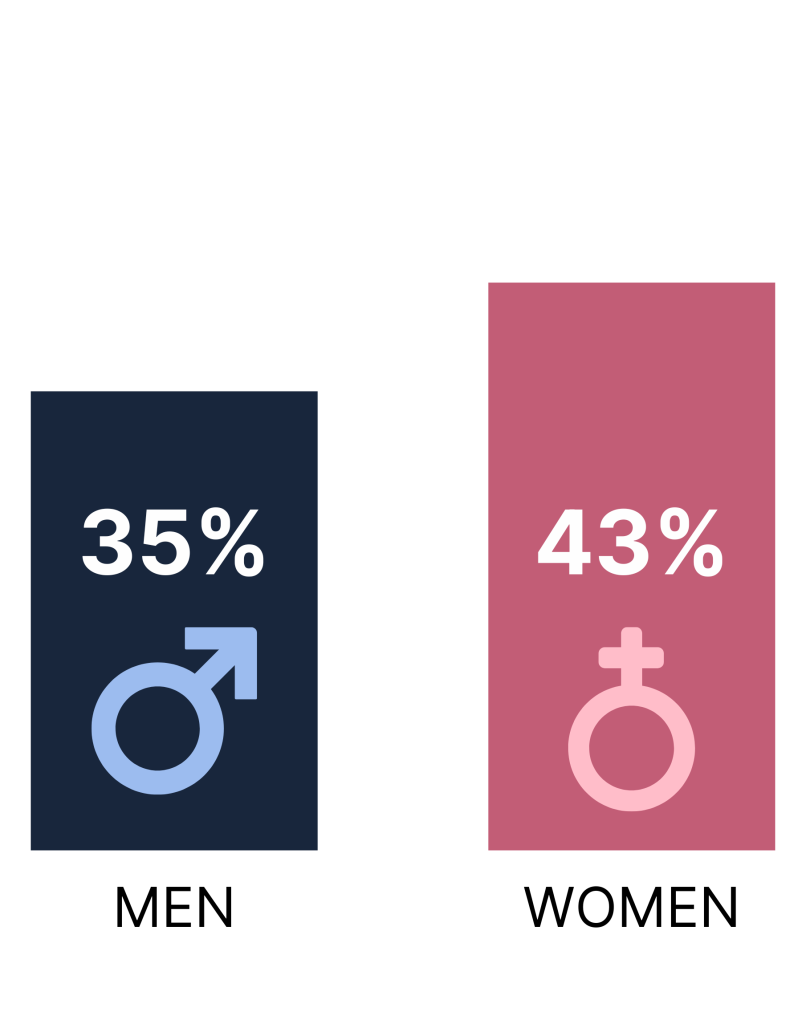
ABILITY TO
JOB SHARE
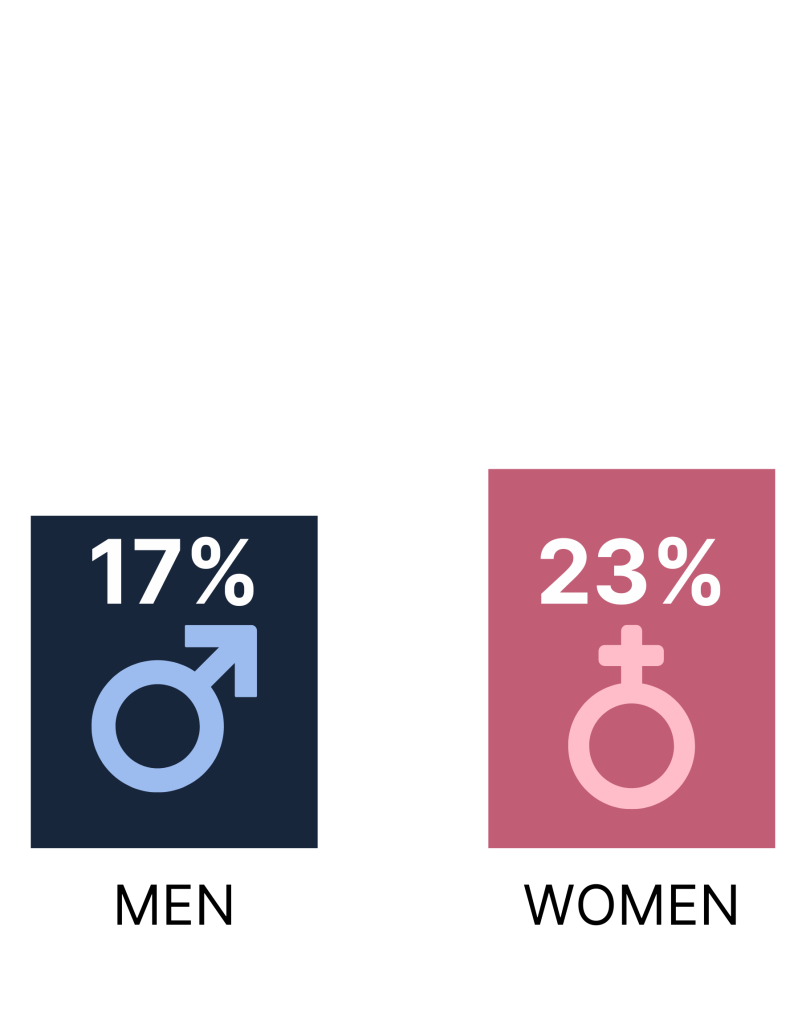
CAREER
DEVELOPMENT
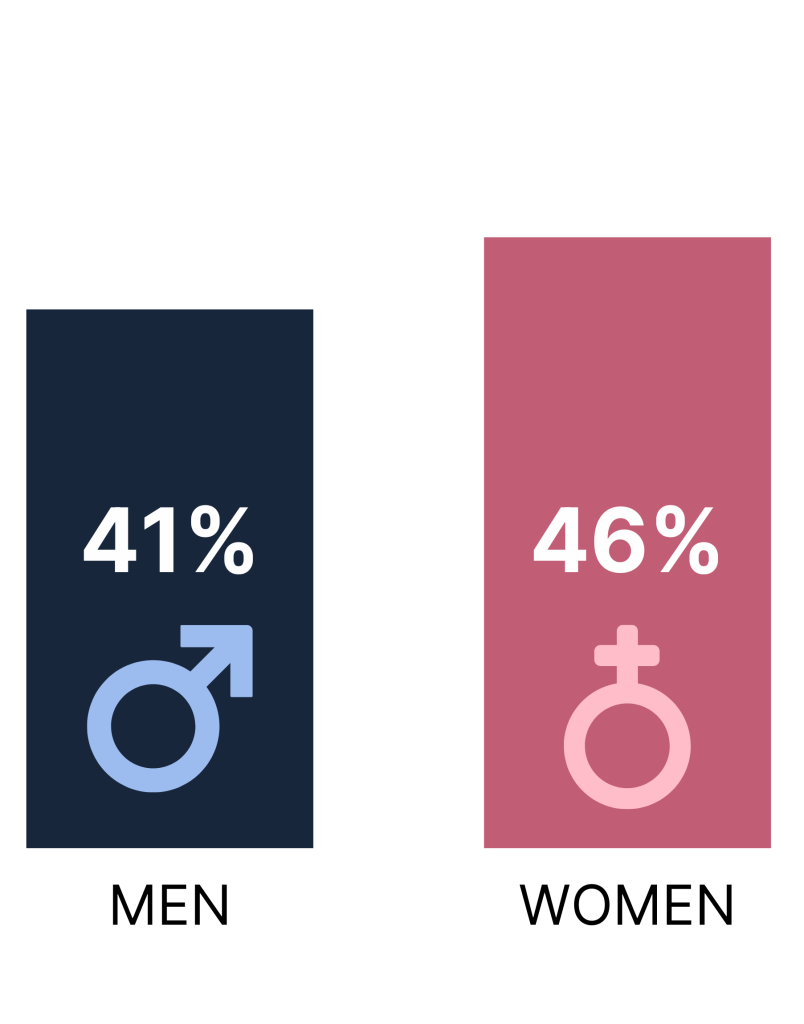
WORKING WITH PEOPLE THEY RESPECT
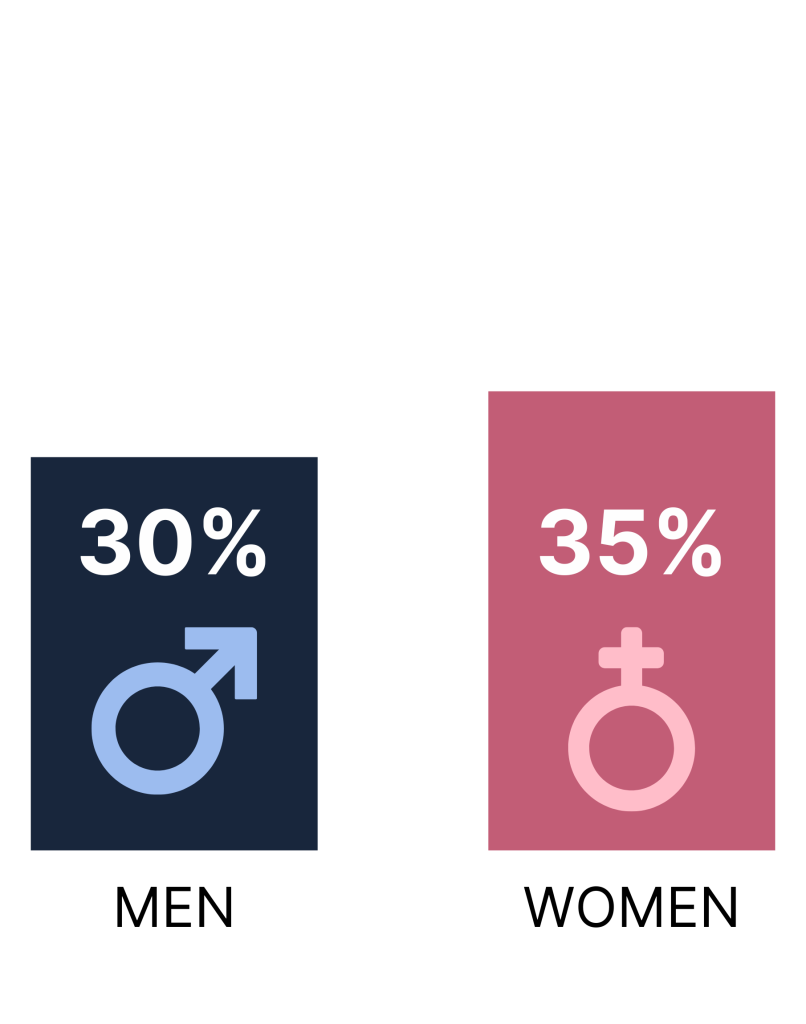
HYBRID
WORK
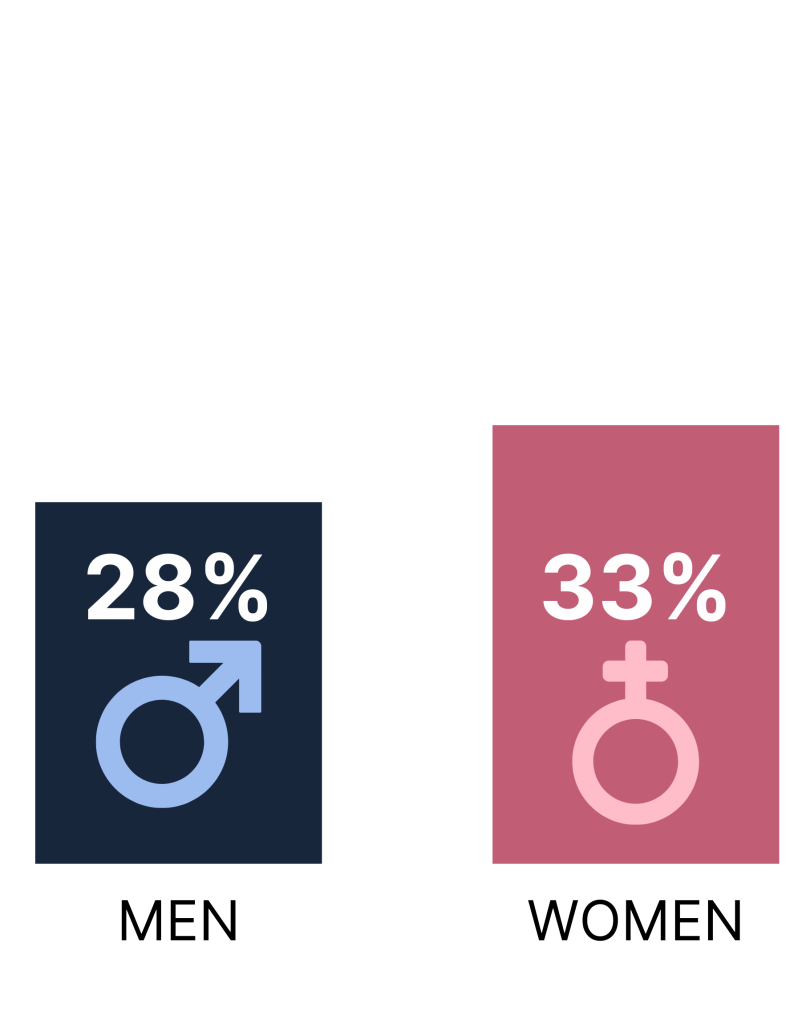
Notably, women value the existence of a healthy work-life balance, the ability to job share and flexible hours much more than men.
The opportunity to work with respected colleagues matters more in some countries.
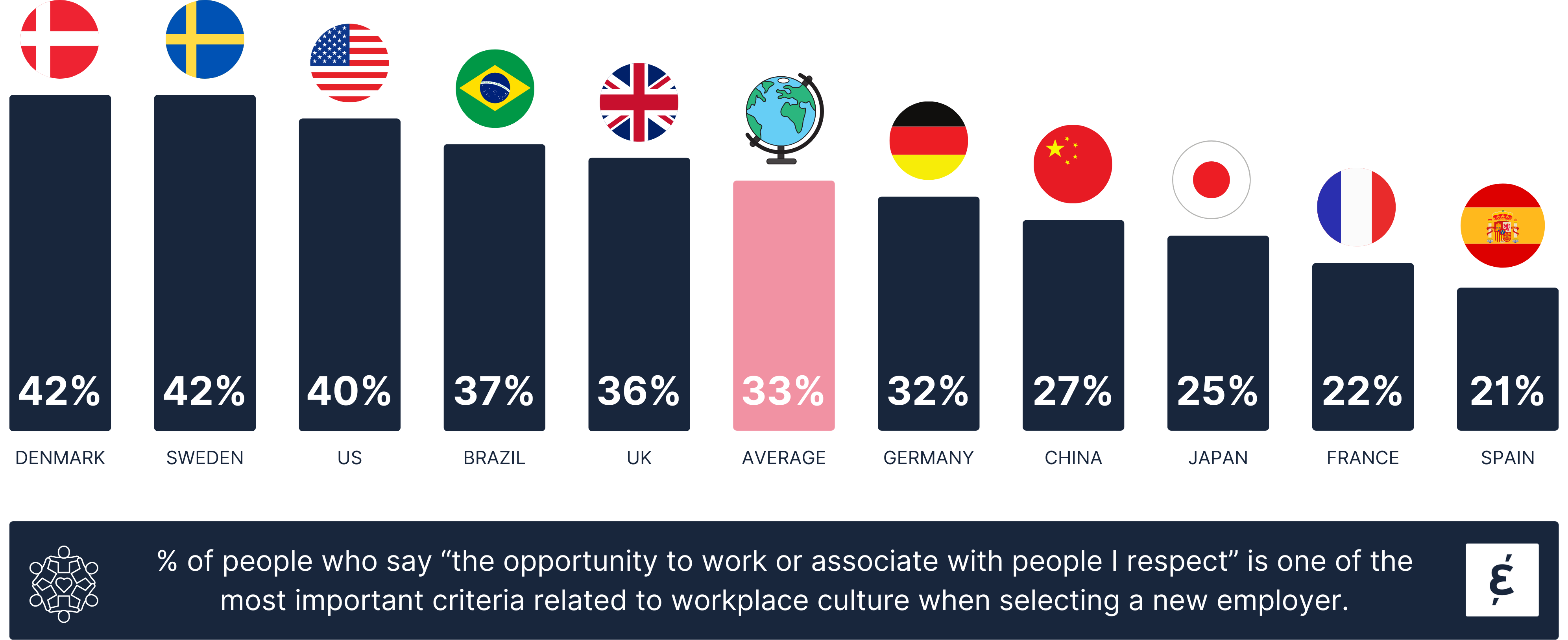
Our third question concerned reputation.
We presented respondents with eleven criteria related to corporate reputation and asked them to choose those they deem most important when selecting a new employer.
Once again, men and women have roughly the same order of priorities, including the same top two criteria — the company’s financial stability and growth prospects and the company’s values being aligned with their own.
But beyond the top two criteria, men and women have slightly different priorities.
The company’s technological or innovative capabilities are the third-most important reputation-related factor for men (33%) — but the eighth-most important for women (26%).
And, once again, there are several significant gaps between the sexes.
REPUTATION AMONG CURRENT & FORMER EMPLOYEES

PRESENCE OF WOMEN/MINORITIES AT BOARD LEVEL

COMPANY’S VALUES ALIGNED WITH THEIR OWN

INSPIRING MANAGEMENT OR LEADERSHIP

CLEAR AND PROGRESSIVE POLICIES ON DEI

Do people choose an employer because of its leadership? That may depend on where they live.
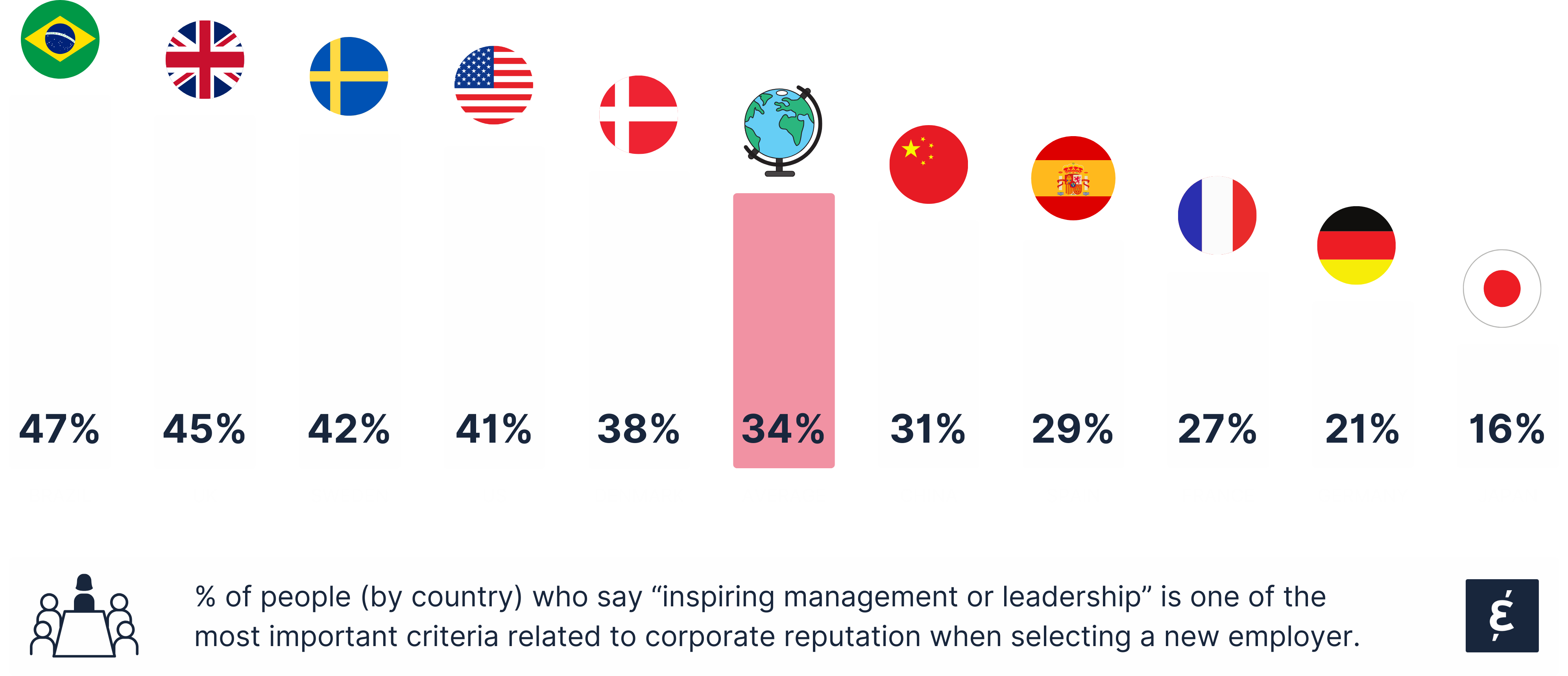
Women clearly value workplace flexibility and its consequences more than men. They value the ability to set their own schedule through more flexible hours, job sharing and remote working.
This mirrors their preference for jobs with a healthy work-life balance, as well as those with a convenient location and a shorter commute.

These preferences may well be explained by the demands of childcare, housework and other forms of unpaid labor falling disproportionately on women — and having to be squared with the competing demands of work.
That’s a conclusion McKinsey reached in its recent Women in the Workplace report:
“Flexibility is allowing women to pursue their ambitions: overall, one in five women say flexibility has helped them stay in their job or avoid reducing their hours.
A large number of women who work hybrid or remotely point to feeling less fatigued and burned out as a primary benefit.
And a majority of women report having more focused time to get their work done when they work remotely.”
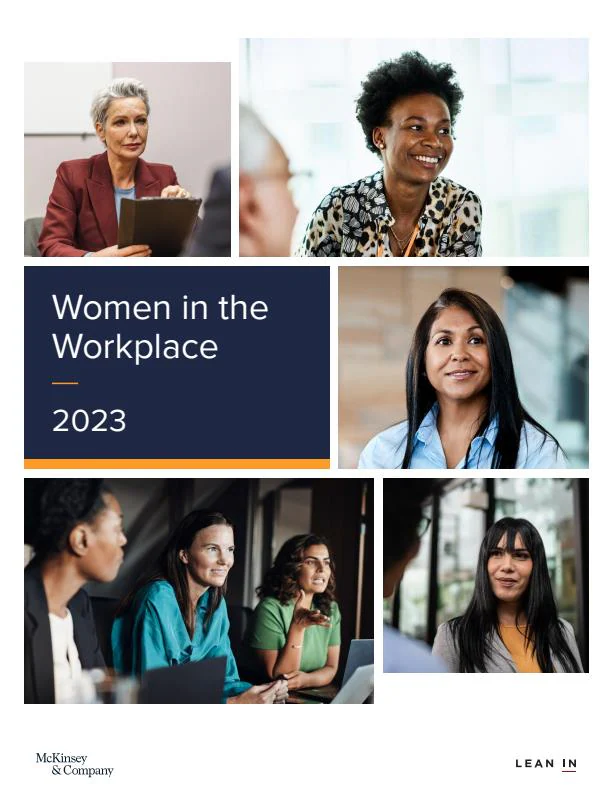
These preferences are also of a piece with the ways that women appear to evaluate the reputation of a potential employer.
According to our data, women place more emphasis on potential “leading indicators” of a healthy work-life balance and flexibility — such as the presence of senior women, inspiring leadership, progressive DEI policies, alignment with their values and reputation among current or former employees.
For companies looking to attract — and retain — more female talent, the conclusion is clear: make it easier for women to set their own schedules through more flexible hours, job sharing and remote working, and ensure a healthy work-life balance.
What’s also clear from our data, though, is that many men also want more flexibility at work. Remember: almost half (49%) see a healthy work-life balance as the most important aspect of workplace culture, more than a third (35%) point to flexible working hours, and more than a quarter (28%) cite hybrid or remote work including working from home.
In other words, women clearly want more flexibility in the workplace — but men aren’t that far behind. Both sexes stand to gain from improving their workplace policies and culture, as do companies that are looking to attract and retain more talent — including more women.
Our exclusive survey reveals what women want at work — and it’s strikingly straightforward.

Both men and women consider salary the most important factor in choosing a new employer — but women place more value on workplace flexibility.
Women place greater value on “leading indicators” of flexibility, such as the presence of women in the C-suite, inspiring leadership and progressive DEI policies.
Companies looking to attract — and retain — more female talent can do so by improving their culture and changing their policies to increase workplace flexibility.
Companies face a worrying global trend — the departure of talented women from the workforce compared to their male counterparts, often because of prevailing workplace policies.
So, what can companies do to attract — and retain — more female talent?
We asked more than six thousand people worldwide* what they consider when choosing a new employer — and the results reveal a stark difference between the sexes.
* We surveyed 6,582 people in ten countries — Brazil, China, Denmark, France, Germany, Japan, Spain, Sweden, the UK and the US — between May 6 and May 13, 2024.
Our first question concerned in-work benefits.
We presented respondents with ten benefits and asked them to choose those they deem most important when selecting a new employer.
Men and women have the same order of priorities.
The top three answers? Salary, location (city or region) and commuting time.
The bottom three? Access to private mental healthcare, parental leave schemes and the presence of international offices.
But they don’t perceive each benefit equally. There are notable gaps between the sexes, with women selecting some benefits much more than men.
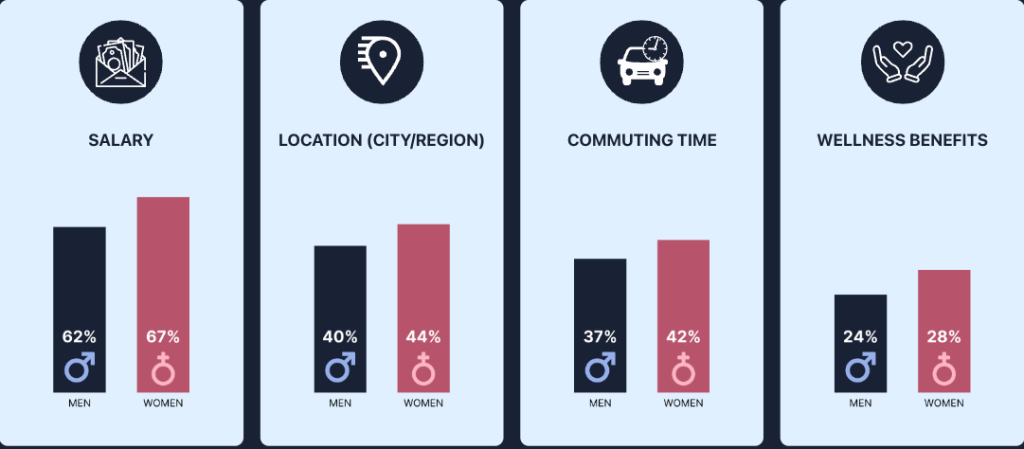
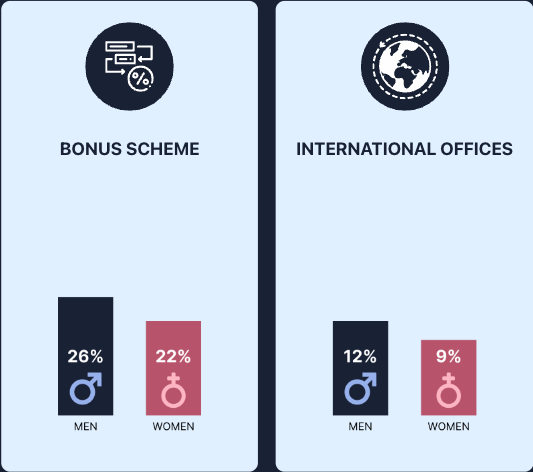
In fact, there are only two in-work benefits that men value more than women — the existence of a bonus scheme and international offices.
Wellness schemes may be a common office perk — but global opinions differ as to their importance.
Our second question concerned workplace culture.
We presented respondents with twelve aspects of office culture and asked them to choose those they deem most important when selecting a new employer.
Though men and women have more or less the same order of priorities, there are considerable differences in how much they value each aspect.
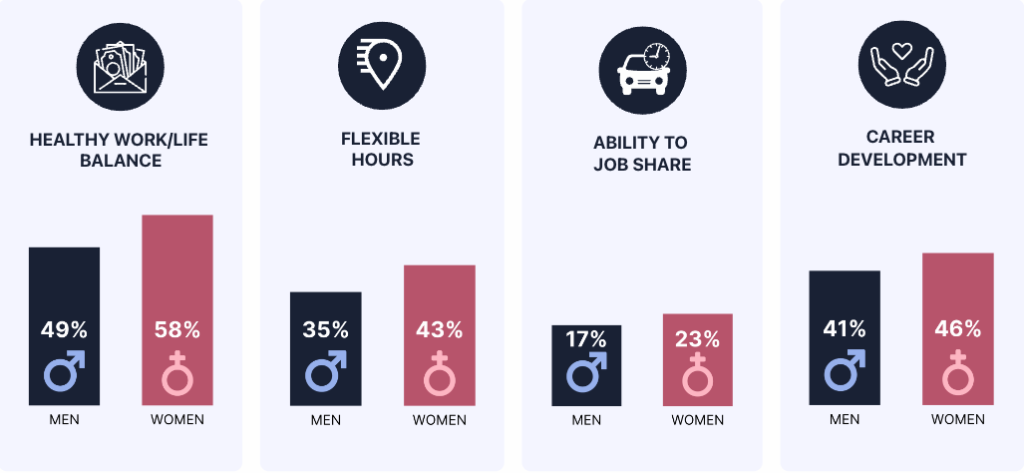
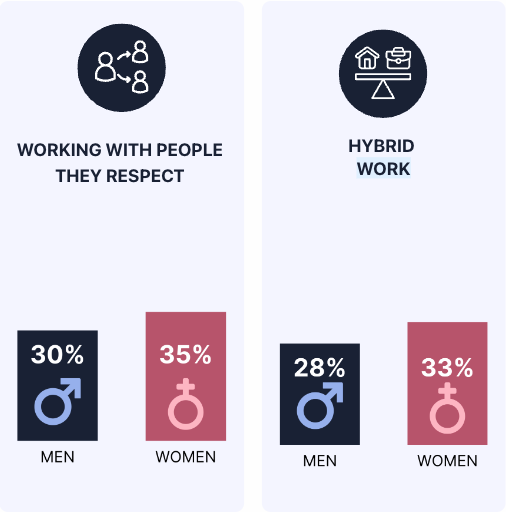
Notably, women value the existence of a healthy work-life balance, the ability to job share and flexible hours much more than men.
The opportunity to work with respected colleagues matters more in some countries.
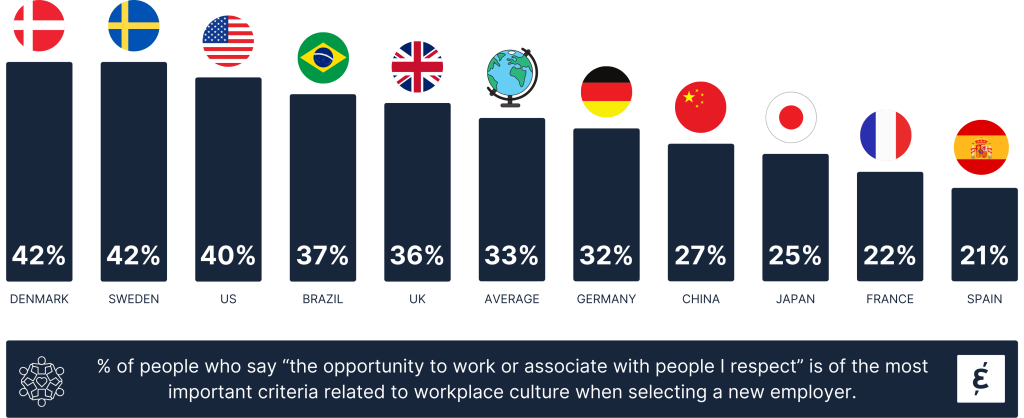
Our third question concerned reputation.
We presented respondents with eleven criteria related to corporate reputation and asked them to choose those they deem most important when selecting a new employer.
Once again, men and women have roughly the same order of priorities, including the same top two criteria — the company’s financial stability and growth prospects and the company’s values being aligned with their own.
But beyond the top two criteria, men and women have slightly different priorities.
The company’s technological or innovative capabilities are the third-most important reputation-related factor for men (33%) — but the eighth-most important for women (26%).
And, once again, there are several significant gaps between the sexes.
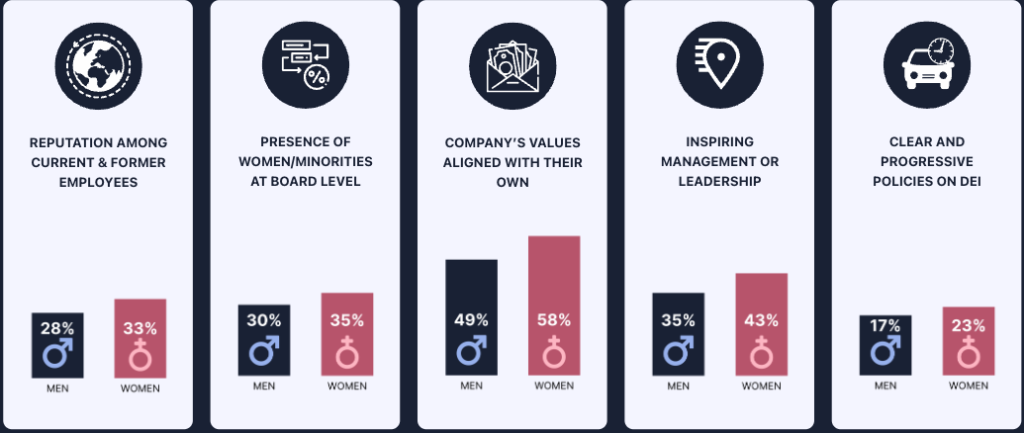
Do people choose an employer because of its leadership? That may depend on where they live.
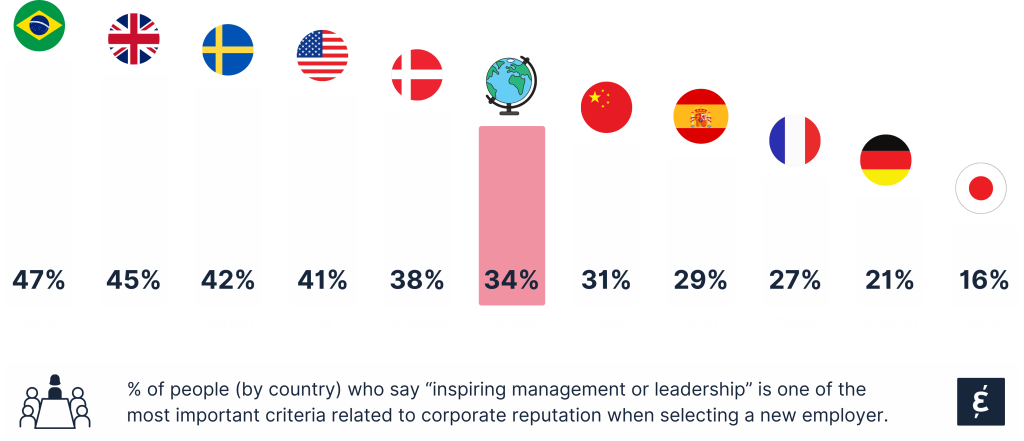
Women clearly value workplace flexibility and its consequences more than men. They value the ability to set their own schedule through more flexible hours, job sharing and remote working.
This mirrors their preference for jobs with a healthy work-life balance, as well as those with a convenient location and a shorter commute.
These preferences may well be explained by the demands of childcare, housework and other forms of unpaid labor falling disproportionately on women — and having to be squared with the competing demands of work.
That’s a conclusion McKinsey reached in its recent Women in the Workplace report:
“Flexibility is allowing women to pursue their ambitions: overall, one in five women say flexibility has helped them stay in their job or avoid reducing their hours.
A large number of women who work hybrid or remotely point to feeling less fatigued and burned out as a primary benefit.
And a majority of women report having more focused time to get their work done when they work remotely.”
These preferences are also of a piece with the ways that women appear to evaluate the reputation of a potential employer.
According to our data, women place more emphasis on potential “leading indicators” of a healthy work-life balance and flexibility — such as the presence of senior women, inspiring leadership, progressive DEI policies, alignment with their values and reputation among current or former employees.
For companies looking to attract — and retain — more female talent, the conclusion is clear: make it easier for women to set their own schedules through more flexible hours, job sharing and remote working, and ensure a healthy work-life balance.
What’s also clear from our data, though, is that many men also want more flexibility at work. Remember: almost half (49%) see a healthy work-life balance as the most important aspect of workplace culture, more than a third (35%) point to flexible working hours, and more than a quarter (28%) cite hybrid or remote work including working from home.
In other words, women clearly want more flexibility in the workplace — but men aren’t that far behind. Both sexes stand to gain from improving their workplace policies and culture, as do companies that are looking to attract and retain more talent — including more women.
© 2024 Group Caliber | All Rights Reserved | VAT: DK39314320